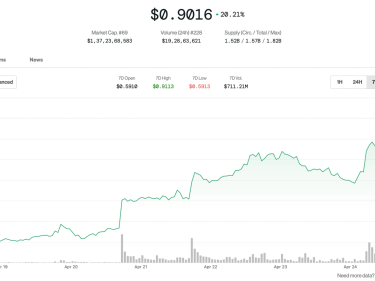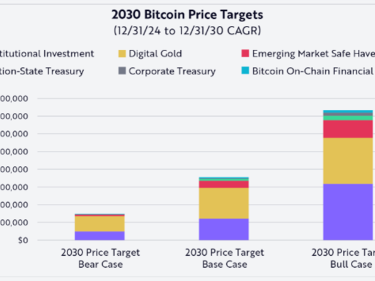This article originally appeared in First Mover, CoinDesk’s daily newsletter, putting the latest moves in crypto markets in context. Subscribe to get it in your inbox every day.
Venezuela’s state-owned oil company, PDVSA, is looking to Tether (USDT) as a means to bypass new sanctions placed on it by the United States, Reuters reported. PDVSA is reportedly trying to integrate more usage of USDT as a hedge against the freezing of foreign bank accounts. Tether is the world’s largest dollar-pegged stablecoin. Tether did not respond to a request for comment by CoinDesk by press time. Reuters reported that PDVSA uses intermediaries when trading crypto in order to obfuscate the on-chain trail.
Shiba Inu, the Ethereum-based ecosystem represented by the second-largest canine-themed token SHIB, raised $12 million in a token sale round for building its privacy-focused blockchain, according to a Monday press release. The list of investors participating in the round are Comma 3 Ventures, Big Brain Holdings, Cypher Capital, Shima Capital, Hercules Ventures, Animoca Brands, Morningstar Ventures, Woodstock Fund, DWF Ventures, Polygon Ventures, Stake Capital, Illuminati Digital Capital, Primal Capital, Mechanism Capital and Spirit Dao, who all purchased the new network’s upcoming utility and governance token TREAT. The deal was completed by Shiba Inu Mint S.A., an ecosystem development firm incorporated in Panama, the press release added.
Cryptocurrency trading firm FalconX has introduced a new prime brokerage service to allow institutions to trade on exchanges while their funds remain in regulated, bankruptcy-remote custody. FalconX’s Prime Connect, unveiled on Tuesday, also includes post-trade settlement, institutional-grade credit, and portfolio margining, the company said in a press release shared with CoinDesk. Deribit, the world’s leading crypto options exchange, is the first to integrate FalconX’s prime broking and custody solution. In the wake of FTX’s collapse, the cryptocurrency industry has realized the need to keep client assets in custodial setups that are completely segregated from those of exchanges, brokers, and trading firms.
The chart shows the yield on the two-year U.S. Treasury note has risen to nearly 5%, the highest since mid-November.
If the yield exceeds 5% for an extended period, risk assets like stocks and cryptocurrencies, could fall out of investor favor.
Source: TradingView.




